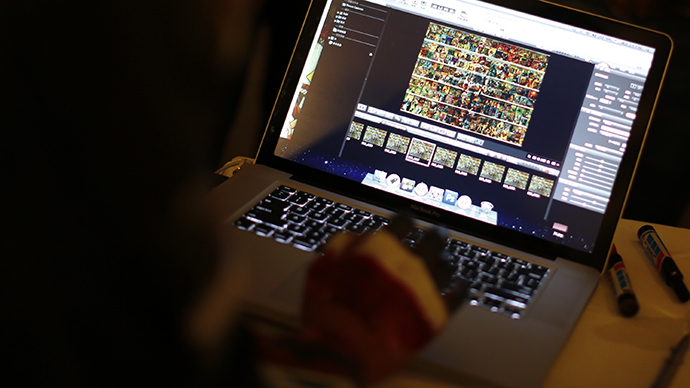UK MoD allocates millions for ‘digital insurgency’, social networking research

The UK’s Ministry of Defence is channeling millions into funding postgraduate studies, such as ‘digital insurgency’, mapping hacker groups such as Anonymous, social networking, online influences on behavior, and tracking crowds by phone.
PhD papers, sponsored by the MoD’s Defence Science and Technology
Laboratory (DTSL), encompass the developing role of cyberspace as
it reaches through the culture of hackers and looks into behavior
in crowd situations, such as at music festivals and football
matches, according to the Guardian.
The impact of social media such as Twitter and Facebook in times
of crisis will also be mapped, not to mention online conspiracy
theories during crises.
Some £10 million ($16 million) will be poured into the program by
the DTSL. However, a large portion of the PhD projects it
supports have a more conventional technological purpose, such as
the development of underwater drones and electronic clothing.
‘The rise of the digital insurgency’ at King's College London has
been allocated £97,487 ($160,000) and will include specific
research into the hacktivist group, ‘Anonymous’. Participants in
the project will be required to “interact” with its
members, supposedly to understand the group’s targets,
motivations and complaints. This feat could prove tricky with a
group that firmly states “no single individual or cell can
possibly represent a broad-based global movement.”
The DTSL itself has additionally put out a call for conference
papers to be delivered in February. ‘Social Influence in the
Information Age’ intends to explore “Identified
technology-driven social trends; novel social analytical tools
and techniques enabled by the internet; the role of
cyber-platforms in enabling individuals to form novel
groupings,” and “the role of cyber-platforms in creating
novel influence channels for both groups and individuals.”
The actual conference will, however, be by invitation-only.
Further PhD projects will be funded nationwide, at the
universities of Exeter, Southampton, Glasgow and Queen Mary,
University of London in order to examine the influence of online
behavior on societies. Exeter has been granted £82,630 ($136,000)
by the DTSL for its PhD research on ‘Collective Action in the
Digital Age: Social identities and the influence of online and
offline behavior.’
“The question of how people from various walks of life, with
a range of social networks, can emerge onto the street and engage
in coordinated action is a complex but important one,” the
project description states, acknowledging their formative impact
on protest movements in Egypt, the 2011 riots across English
towns and cities, and the London student fee protests.
Queen Mary is receiving funding for two separate projects: one,
which looks at the ways technology might be used to exert
influence, gets £137,433 ($225,720); another
entitled,‘Cross-cultural attitudes and the shaping of online
behavior in crisis situations’ receives £139,649 ($229,360),
according to the statistics seen by the Guardian. Part of the
first program involves the analysis of crowd behavior through
ad-hoc mobile sensors – which are generally used in mobile phones
for mapping, and can be used to track the whereabouts of the
phone’s owner.
One of the methods to receive focus will be ‘targeting
influential individuals’ and crowdsourcing.
The second program will explore information flow in times of
crisis on social media, and how “dominant’” media commentaries
are overridden or debased by firsthand accounts.
"Significant privacy implications"
Jim Killock, executive director of the Open Rights Group, told
the paper that the move to fund this sort of research raised
serious questions: “There is often a strong case for moves in
this direction to be tempered by some very hard thinking about
the ethics of these questions, and the risk of legitimate
policing slipping, potentially, into being attempts to control
and influence,” she said.
“Obviously, the nature and type of the mass surveillance
which we now know that the NSA and GCHQ engaged in was simply not
legitimate,” she added, giving a reminder of the mass
government surveillance which has been exposed to the public by
former NSA contractor, Edward Snowden, since June.
Nick Pickles, director of Big Brother Watch stated the research
“clearly carries significant privacy implications.”
“The department needs to be much more transparent about why it is
funding so much of this research, if the public are to have
confidence that it does not threaten our civil liberties and that
the military's surveillance capabilities are not to be turned on
British citizens,” Pickles said.
An MoD spokesperson said that the organization was “trying to
understand the world in which we live” and that in doing so,
it needs to assimilate “an understanding of events in
cyberspace and how they might unfold.”














